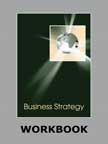Case Details: |
Price: |
| Case Code |
: |
BSTR304 |
For delivery in electronic format: Rs.
400;
For delivery through courier (within India): Rs. 400 + Rs. 25 for Shipping & Handling ChargesThemes
International Business | Globalization Business |
| Case Length |
: |
24 Pages |
| Period |
: |
2001-2008 |
| Pub Date |
: |
2009 |
| Teaching Note |
: |
Available |
| Organization |
: |
Starbucks |
| Industry |
: |
Food and Beverage |
| Countries
|
: |
Australia;
Global |
Abstract:
|
This case is about the Australia endeavor of Starbucks Coffee
International, one of the largest specialty coffee chains of the world. In July
2008, the company closed down the majority of its stores in the island continent
citing non-performance triggered by the economic melt-down as a key reason
behind the closures. The company said that the closures were a part of the
transformation strategy being undertaken by its founder Howard Schultz to revive
the company's performance. It also clarified that such a step was unique to
Australia and that it would continue to enhance its presence in other
international locations.
|
|
Starbucks entered the Australian market in July 2000 with its
first store being set up in Sydney's business area. Australia was a market with
a sophisticated coffee culture and had numerous local cafés catering to its
demand for premium coffee. Although the lack of ready acceptance and the
presence of various competitors hindered its progress, Starbucks expanded
quickly by opening company-owned stores in various towns and cities of
Australia. This it did without much customization of its product, process, or
promotional strategies. Experts felt that Starbucks failed in the Australian
market largely due to its inability to understand the Australian consumer and
culture.
The case discusses the circumstances leading to the closure of the majority of
Starbucks stores in Australia in 2008. The decision to close down these stores
came right after the company had recorded a consolidated net loss for the
quarter ended June 29, 2008. It aims at portraying the reasons behind Starbucks'failure to allure the Australian coffee drinker. It also attempts to understand
the company's objective and rationale behind partially withdrawing from a
coffee-drinking market while it continued to operate in European and other
international markets.
Issues:
» Examine reasons for Sainsbury's growth and its subsequent slide in the 1990s
and early 2000s.
» Analyze the reasons for the recovery efforts taken under various CEOs
including Peter Davis that did not yield the desired results.
» Analyze Justin King's 'Making Sainsbury's Great Again' plan.
» Ascertain the challenges the company is likely to face in the future and
explore future strategies that the retailer can adopt.
Contents:
Keywords:
Globalization, Entry, Expansion, Competition, Location,
Culture, Australian culture, Commoditization, Standardization, Cannibalization,
Gourmet coffee industry, The Starbucks experience, Australian café market,
Experiential marketing
Starbucks: Down Under?
- Next Page>>
|


